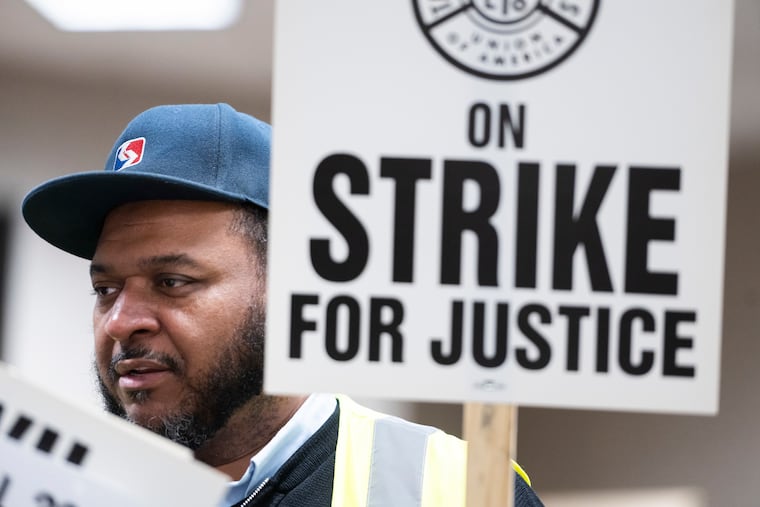SEPTA workers prepare for potential strike that could come as soon as Friday
With roughly 5,000 members, Local 234 represents bus, subway, and trolley operators, mechanics, cashiers, maintenance people, and custodians. It is SEPTA’s largest bargaining unit.

“Two Thirty Four,” members of Philadelphia’s Transport Workers local union chanted as they gathered armfuls of picket signs Monday night, preparing for a strike against SEPTA that could happen as early as Friday morning.
“Who?” called a man with a bass voice. Came the response: “Two Thirty Four.” With roughly 5,000 members, Local 234 represents bus, subway, and trolley operators, mechanics, cashiers, maintenance people, and custodians. It is SEPTA’s largest bargaining unit.
Contract talks had yet to yield a new agreement, and several workers said they were determined to do whatever needed to be done to secure a safer workplace amid a rise in assaults and harassment from people who are angry, high, or disturbed. They also want a raise.
“We don’t want to go out, but we’ve got to stand up,” said Bob Gillespie, a SEPTA bus operator in the Northeast with 30 years on the job. “We have to stand for what we believe in. Hopefully we can get this worked out.”
» READ MORE: What you need to know about a possible SEPTA strike
Union members voted last week to authorize a strike as soon as Friday at 12:01 a.m., after their current contract expires — and named safety and security as their number one issue. The vote does not mean the union would immediately walk.
Leaders of TWU Local 234 and District Council 33, which represents about 9,000 city workers, met last week to discuss the possibility of timing strikes together, as first reported by KYW. The city workers union plans a strike authorization vote by secret ballot from Thursday to Nov. 13, with results announced the next day. DC 33 members have been working without a contract since July, when their last deal expired.
SEPTA has said it is “committed to good-faith negotiations” and toward a fair agreement. But the agency also says it is constrained by financial uncertainty and has offered a one-year contract with no raise, compared with a 10% increase in the union’s first proposal.
The agency faces a $240 million deficit that could bring service cuts and a second fare increase soon with no action in Harrisburg on state aid for public transportation systems.
Despite an overall reduction of crime across the transit system this year, drivers have continued to face violent assaults — a teen was shot inside a bus early last month, and a gunman opened fire on another bus days later.
“A lot of people run rampant,” said Malikah Askia, 44, a cashier on the Broad Street Line for two decades. “They need to be held accountable. You cannot harm us and think that is OK.”
Though SEPTA has increased its Transit Police force, more officers are needed, the union says. Union members said they have yet to see ballistic vests, bulletproof compartments for bus and trolley operators, and other safety changes SEPTA pledged to work on during last year’s contract negotiations.
“So it has to be more than what you’re saying you’re going to do, not lip service,” Askia said. “We need you to actually do it. This is important to us. We need to make it home to our families.”
SEPTA is known as one of the most strike-prone large transit systems in the country. Since 1975, at least 11 unions have walked off the job. Last year, SEPTA police officers struck for three days in December after working without a contract for nine months.